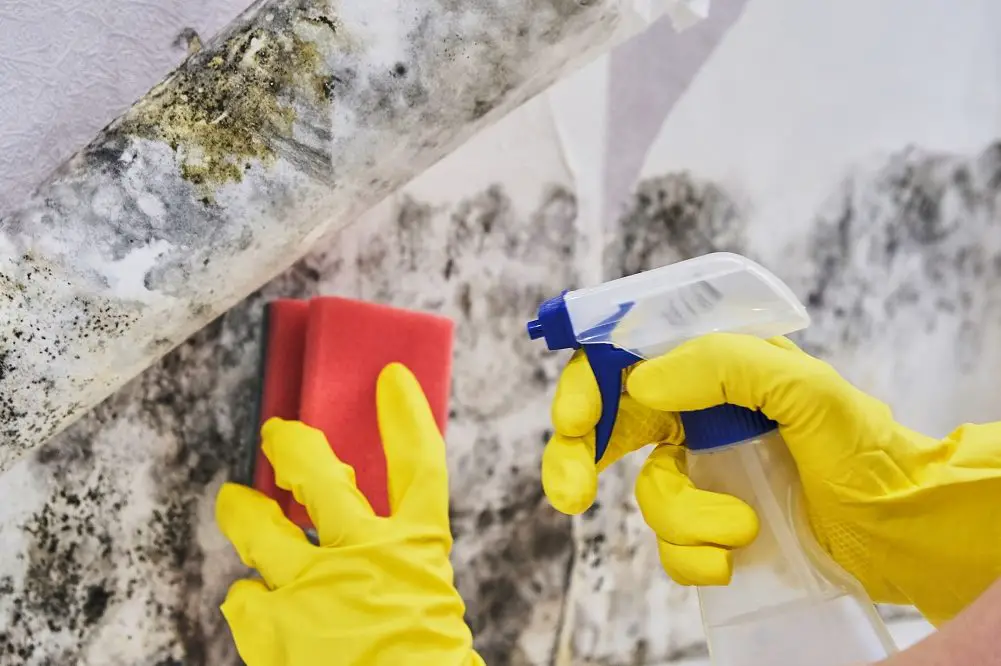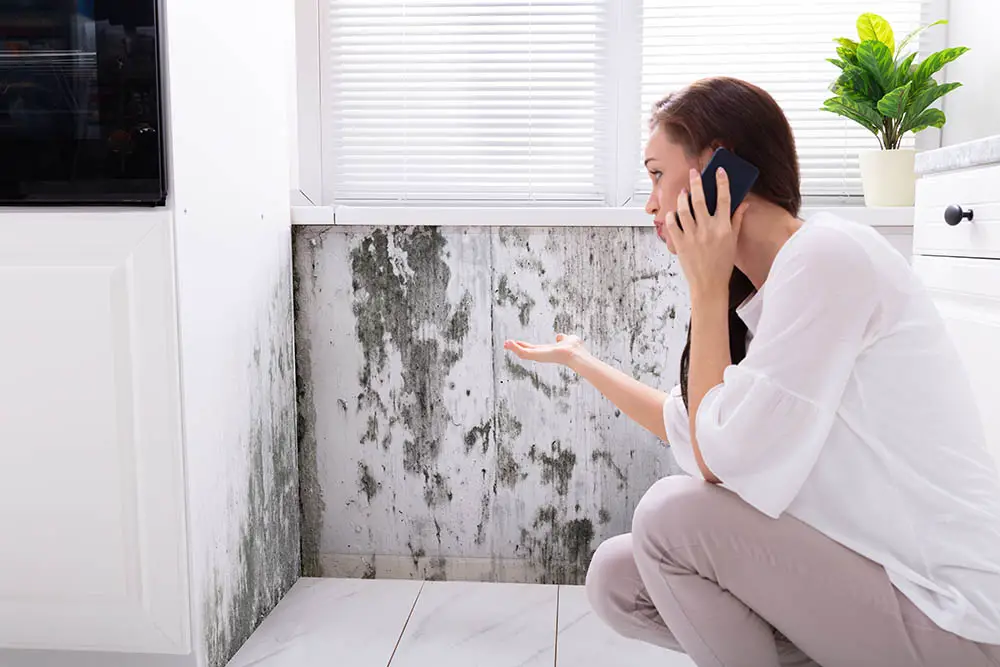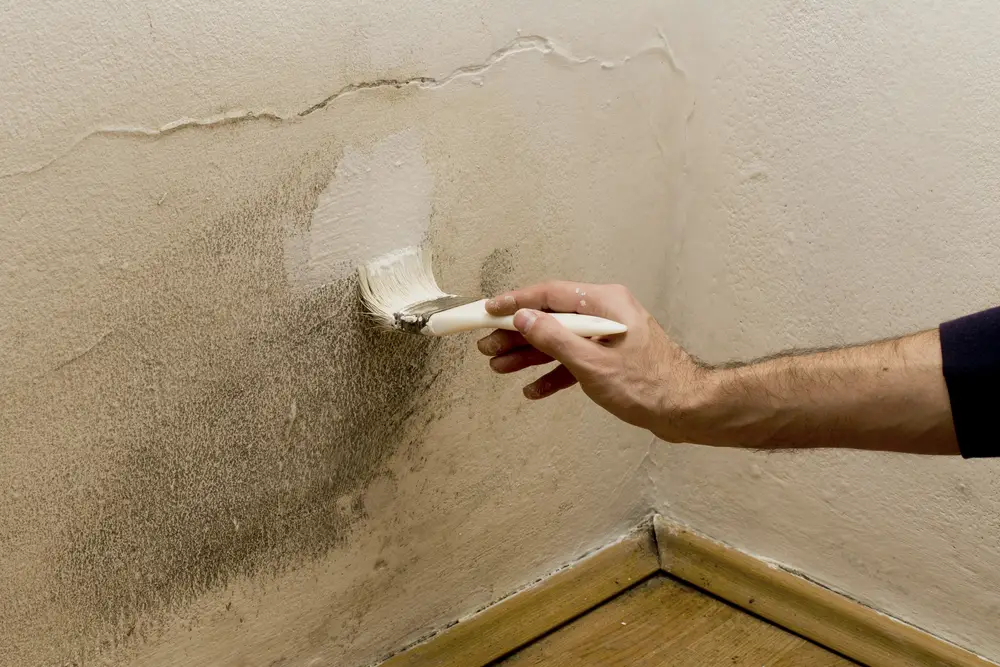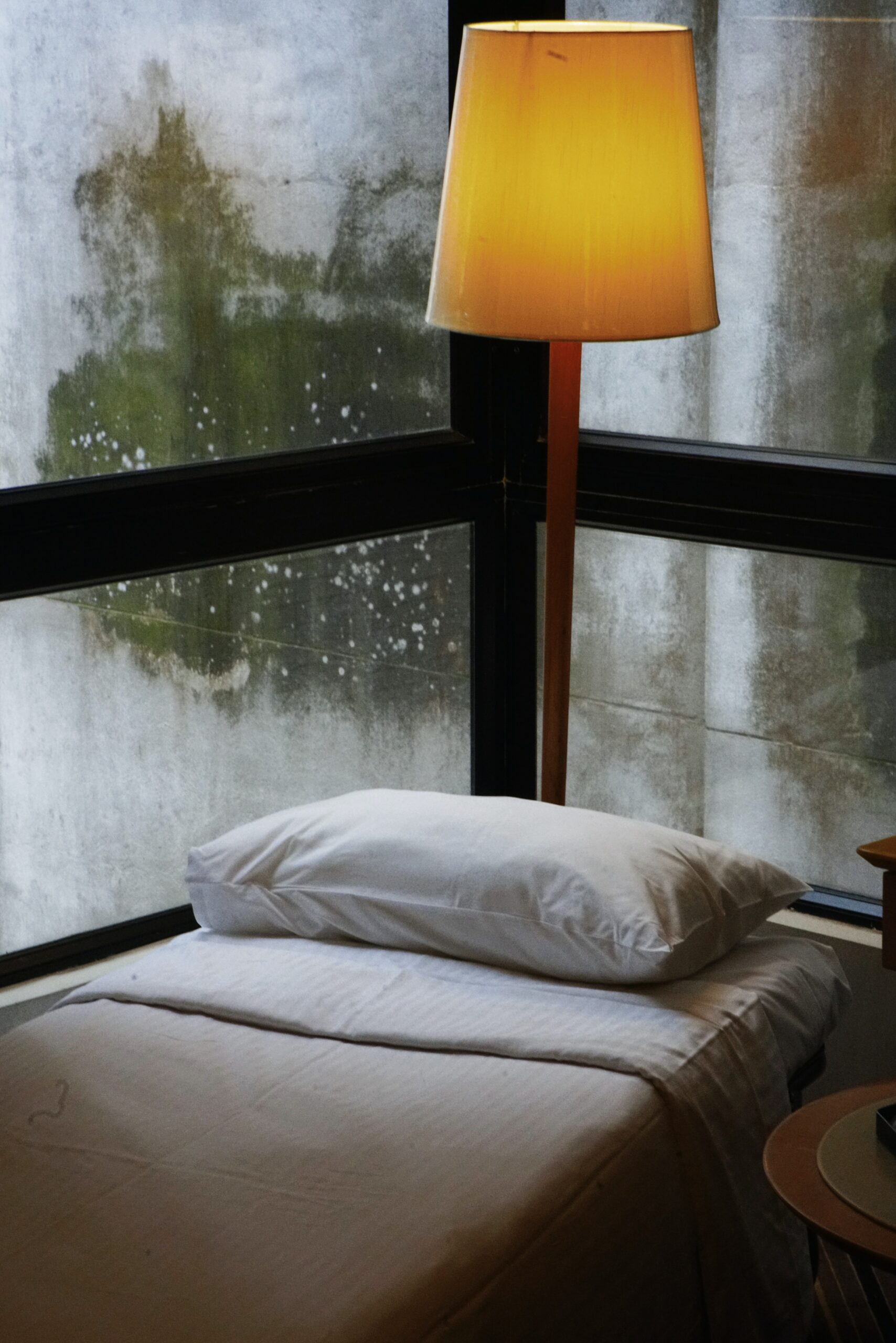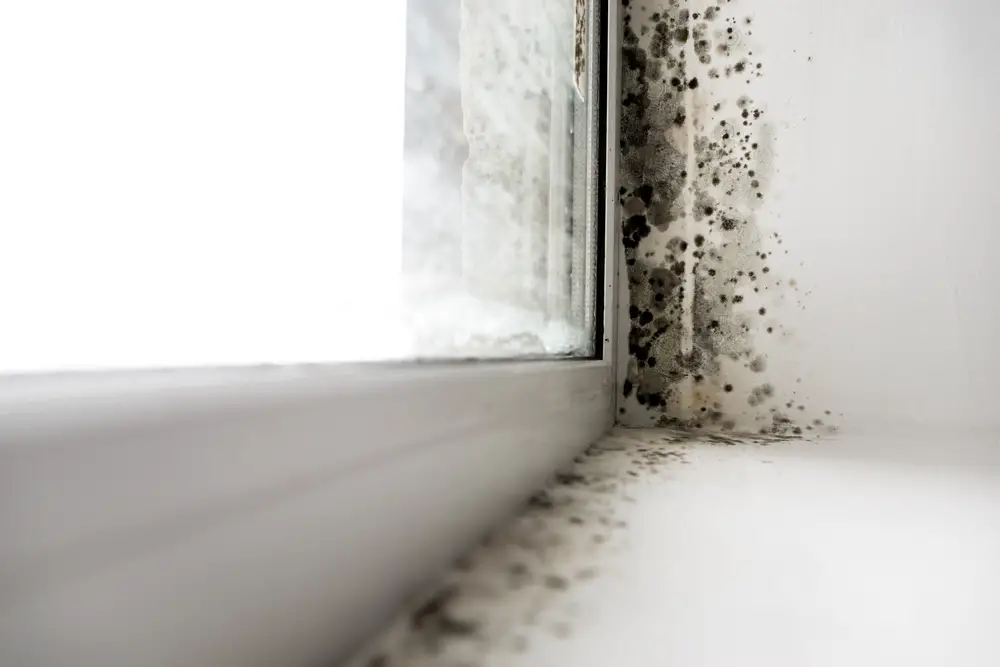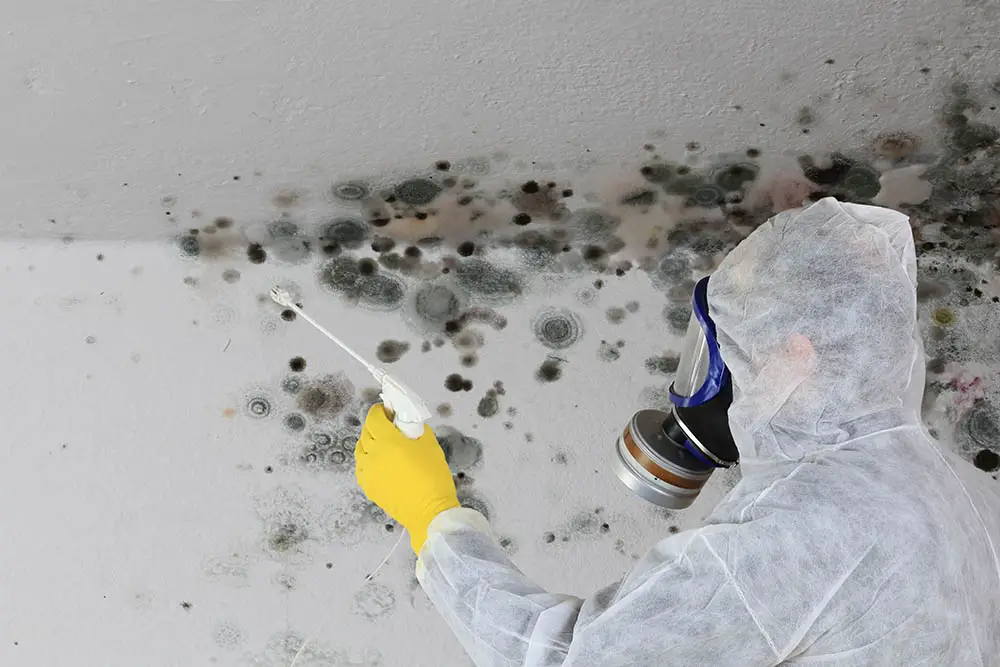Mold is something that doesn’t have to be visible for it to be present. Can mold inside walls make you sick? Well, for sure mold is a frustrating issue for any homeowner or tenant to have to deal with. Mold can have many different effects on a human being, let’s discuss if making you sick may or may not be one of them.
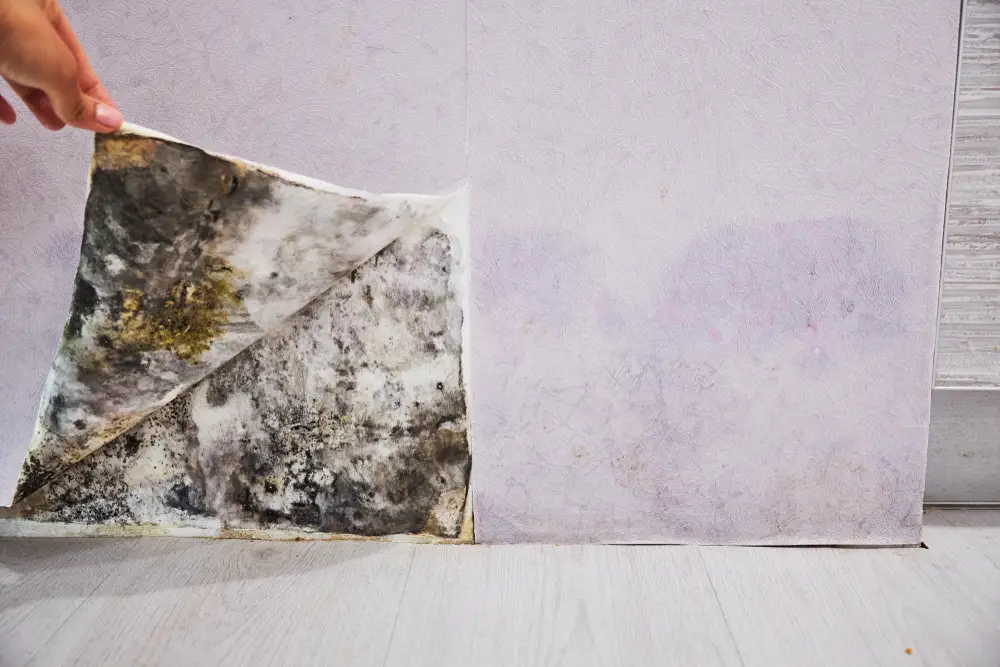
What is Mold?
Mold is a type of fungus that is made up of small organisms found almost everywhere. It can come in a variety of colors: black, white, green…even orange or purple. In some cases, mold is good. For example, it plays a big role in nature, where it’s responsible for breaking down dead leaves, plants, and trees.
In small amounts, mold spores aren’t harmful, but when they land on a damp spot in your home, they can start to grow, and this is when they can be released into the air and can easily be inhaled.
Some people are sensitive to mold, and as a result, they can experience health problems and illness if they inhale a large number of spores.
Can Mold Behind a Wall Make You Sick?
Mold growth is often caused by water damage, so water stains on your walls could be an indicator that mold is growing behind them. These may be yellow or brown in color, and may even feel damp to the touch.
Mold may cause your walls to crack or deteriorate, causing wallpaper to peel or bubble due to the moisture. They may even change the shape, becoming warped, bulging, or bow-shaped. You can often also smell it – mold has a musty, earthy smell.
But aside from these unpleasant characteristics of mold, mold growing on or inside your walls may even make you sick – especially if you suffer from asthma or allergies.
Even if you don’t have either of these, exposure to mold can cause irritation to your eyes, skin, throat, nose, and lungs. Some people even have issues with breathing due to mold, while others may get headaches, or a runny nose and congestion.
Can Dead Mold Make You Sick?
Exposure to mold spores – whether they’re dead or alive – and their byproducts such as microbial volatile organic compounds (MVOCs), mycotoxins, connecting filaments, etc. can make you sick.
These can cause illnesses that can vary from minor allergic reactions, and aggravated respiratory problems like asthma and sinusitis, to more serious, and even life-threatening, illnesses.
Every individual responds to mold differently, and while some people won’t experience any impact on their health, others will get ill from even a small amount of mold.
Research indicates that around 25% of the population have a genetic predisposition to mold illness and a condition known as Chronic Inflammatory Response Syndrome (CIRS).
Who is More Vulnerable to Mold?
As we said, everybody responds differently to the presence of mold, however, there are some people who are more vulnerable to the effects of it.
- Infants and children
- Seniors
- People with compromised immune systems. For example, those with a HIV infection, cancer, liver disease, or those undergoing chemotherapy
- People with chronic lung disease, cystic fibrosis, chronic obstructive pulmonary disorder (COPD)
How to Deal With Mold
It’s impossible to completely eliminate mold and mold spores from your home, but it’s important to get rid of the moisture that allows the spores to spread and thrive. If you already have mold in your home, clean it up and fix the issue that’s causing the mold, otherwise it’ll persist and reemerge.
Here are some ways in which you can reduce moisture throughout the home and hopefully keep mold at bay:
- Try to keep indoor humidity levels below 60%
- If you live in a hot, humid climate, opt for dehumidifiers and air conditioners to reduce moisture in the air
- Keep the drip pans for your air conditioning clean, and ensure drain lines are free of obstructions and flow properly.
- In cool weather, keep your house warm. In lower temperatures, the air is less capable of holding moisture and instead it condenses on cold surfaces, encouraging mold growth.
- Dry wet areas within 24-48 hours to prevent the risk of mold growth.
- Fix leaks and seepage.
- Have a heating and cooling contractor check your heating and cooling system and make sure it’s maintained regularly. If your system is too big or the airflow is incorrect, your air conditioner will be working ineffectively and will fail to remove humidity as it should. You should also ask the contractor to check your duct system for air leaks.
- Keep doors open between rooms to increase circulation, use fans, and move furniture away from wall corners.
- Use exhaust fans to move moisture outside when you’re cooking or using appliances
- Turn off certain appliances if moisture appears on windows and other surfaces when they’re in use.
- Empty and clean refrigerator drip pans if necessary.
- Check for leaks around the kitchen sink, refrigerator ice makers, and any other sources of water, and ensure these are repaired.

